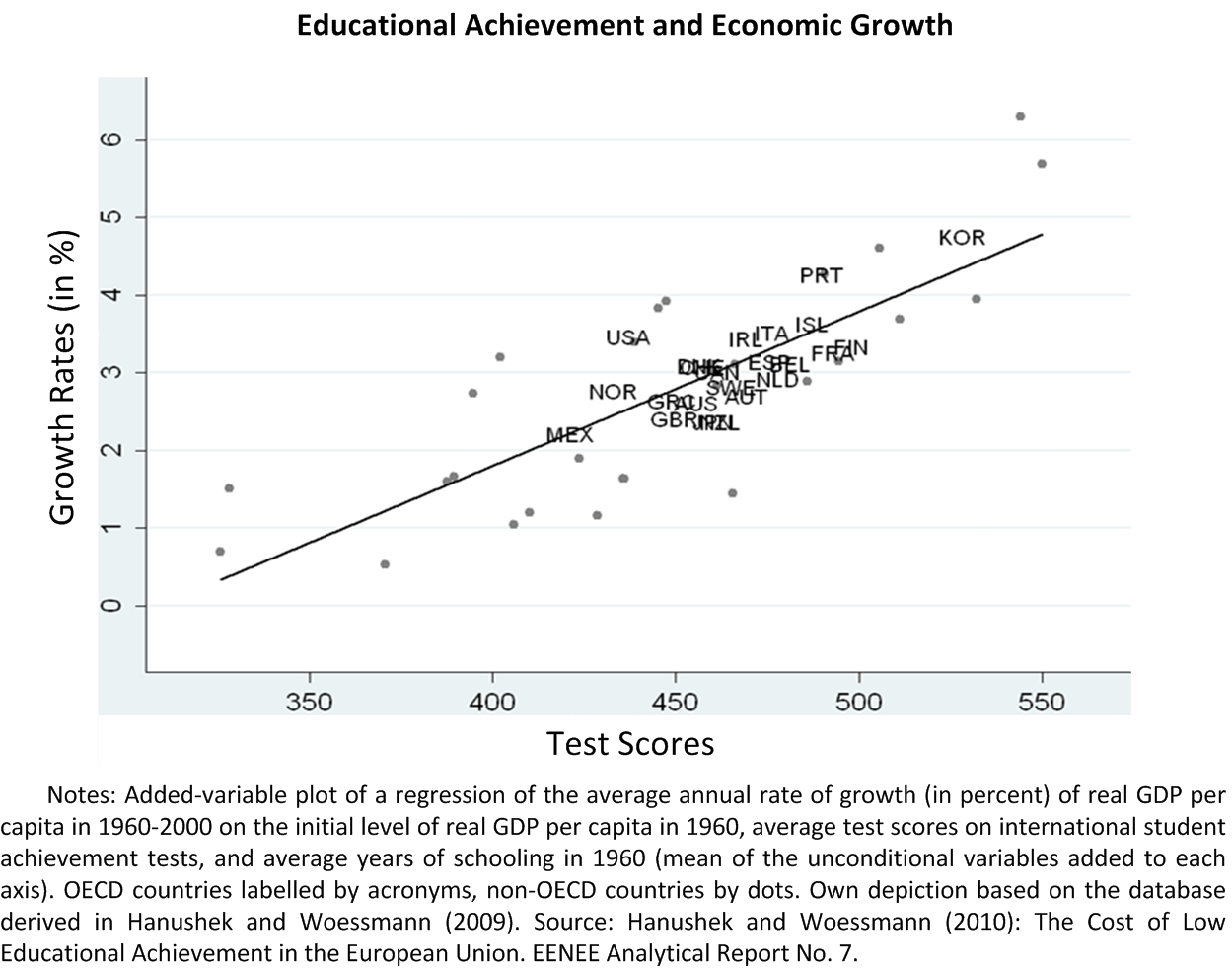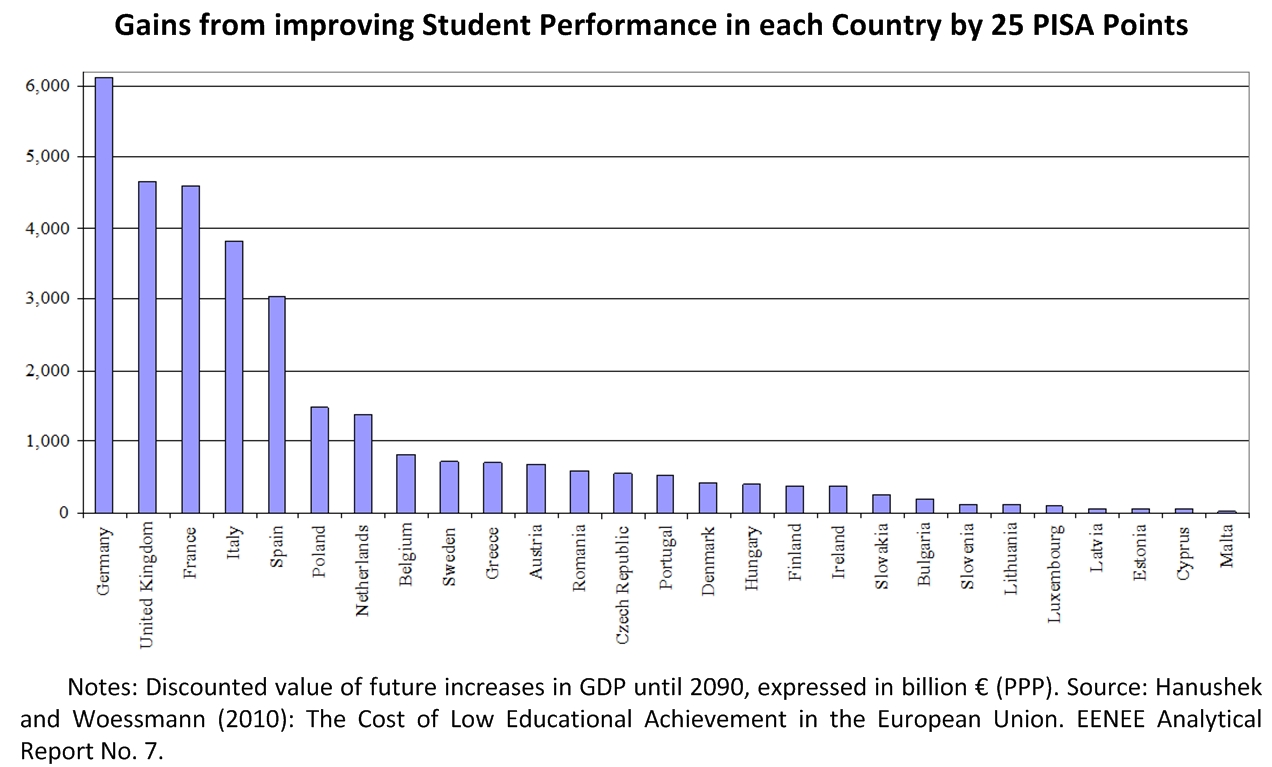European Perspective
Policy Perspective
The relevance of high-quality European education and training systems for prosperity and cohesion in Europe has widely been recognized in the European Union for several years. Based on the key strategy of the 2000 Lisbon agenda to make Europe “the most competitive and dynamic knowledge-based economy in the world, capable of sustainable economic growth with more and better jobs and greater social cohesion” until 2010, many important policy documents of recent years corroborate that the design of Europe’s education and training systems is a crucial component on the way to achieve this goal. The need for policy cooperation with Member States in this field is also well documented in the “Updated strategic framework for European cooperation in education and training” beyond 2010 which serves as a guideline for the Commission’s work in this field.
In the meantime, the European Union has adopted its new growth strategy Europe 2020 which aims at achieving smart, sustainable and inclusive growth across the whole European Union. Several headline targets have been agreed on in order to monitor the progress towards these growth objectives. Since education and training systems are believed to play a major role in this context, two headline targets specifically refer to this field:
- Reducing school drop-out rates below 10%
- Increasing the share of 30-34 year olds having completed tertiary or equivalent education to at least 40%
In order to come closer to these goals, the European Commission adopted the strategic framework “Education and Training 2020” to improve cooperation between Member States and the European Commission. This is done through the “Open Method of Coordination” thereby fully respecting Member States’ competencies in the field of Education and Training. Two flagship initiatives of the Europe 2020 strategy, the “Agenda for new skills and new jobs” as well as the initiative “Youth on the Move”, seem to be particularly fruitful for achieving the headline targets in education and training.
Research Perspective
Indeed, research results in the economics of education show that education has a considerable impact on economic growth. More concretely, qualitative measures for education seem to be especially important for economic outcomes: Indicators based on cognitive achievement of students, such as countries’ performance in international student achievement tests, turn out to be extremely good predictors for long-run economic growth of nations.

In addition, recent projections for all 27 EU countries show that enhancing countries’ average student performance in the PISA test by 25 points would lead to huge gains in long-term economic growth of EU Member States.

Given such findings, the European Expert Network on the Economics of Education (EENEE) recommends that indicators for educational quality should be of top priority when EU-level educational benchmarks are formulated to monitor the Europe 2020 goals. At the same time, highlighting educational quality would ensure to meet the existing quantitative headline targets specified in the field of education and training.
Based on that, EENEE tries to complement the European Commission’s efforts towards achieving the education goals of Europe 2020. The network’s contributions to different policy initiatives of the Directorate General Education and Culture aim at providing advice based on rigorous research in the economics of education that aims to identify causal associations between education policies and relevant outcomes. By this means, EENEE wants to improve cooperation between researchers and policy-makers across Member States and facilitate implementation of evidence-based policies.
References
- Hanushek, Eric A. and Ludger Woessmann (2010): The Cost of Low Educational Achievement in the European Union. EENEE Analytical Report No. 7. (PDF, 2538 KB)
- Hanushek, Eric A. and Ludger Woessmann (2012): Do Better Schools Lead to More Growth? Cognitive Skills, Economic Outcomes, and Causation. Journal of Economic Growth, 17(4), pp.267–321.
- Hanushek, Eric A. and Ludger Woessmann (2008): The Role of Cognitive Skills in Economic Development. Journal of Economic Literature 46 (3), 607-668







